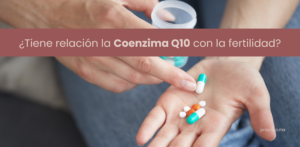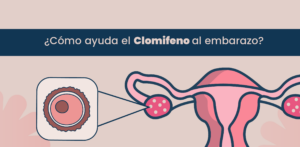The desire to become a mother drives many women to pursue motherhood even without a partner. Fortunately, there are several options available that can help fulfill this dream, and one of them is artificial insemination . This method offers women the possibility of experiencing motherhood and starting a family on their own. In this blog post, we will provide more information about artificial insemination and the process involved.
What is artificial insemination?
Artificial insemination is an assisted reproduction that involves introducing a processed semen sample into the uterus to increase the chances of achieving pregnancy. The procedure is typically performed in a medical office and is relatively quick, non-invasive, and generally does not require anesthesia, eliminating the need for post-surgery recovery.
This technique allows women without partners to choose an anonymous or known donor, allowing them to choose someone who meets their criteria and preferences, such as physical characteristics or medical history.
The artificial insemination offers several advantages over other more complex assisted reproduction For instance, it requires gentler ovarian stimulation and less medication, which can be beneficial for women who prefer to minimize drug exposure or who have limited ovarian response.
When is it recomended?
The artificial insemination is an excellent option for women who have a good ovarian reserve and who want to be single mothers. It is also recommended when there are:
- Cervical problems: Some women may have hostile cervical mucus, making it difficult for sperm to pass into the uterus. artificial insemination can help overcome this problem by placing the sperm directly into the uterus.
- Ovulation disorders: Women who have trouble ovulating regularly or do not ovulate can benefit from artificial insemination , as it delivers a higher concentration of sperm directly into the fallopian tubes.
- Mild male fertility problems: If the man has a low sperm concentration, reduced motility, or abnormal morphology, artificial insemination can increase the chances of achieving pregnancy.
Preparation and process
The preparation and process of artificial insemination may vary depending on each woman's circumstances. However, in general, an initial evaluation is conducted, which includes fertility tests, ultrasound scans, and hormonal tests to assess the quality of the eggs and ovarian function. In some cases, medication may be recommended to stimulate ovulation and obtain a larger number of eggs, thus increasing the chances of success. The menstrual cycle is also monitored through ultrasound scans and blood tests to determine the optimal time for insemination. Meanwhile, the semen is processed in the laboratory to select the sperm with the best mobility and morphology.
During the insemination procedure, a fine, flexible cannula is inserted through the cervix, and the sperm are deposited directly into the uterus. This process is quick and painless. A short period of rest is then recommended, and follow-up appointments are scheduled to monitor the process.
Being a single mother through artificial insemination does not mean going through the process alone. The guidance of a specialist in assisted reproduction is essential to accompany you throughout your process. Additionally, having a solid emotional support system consisting of friends, family, and support groups will help you face the challenges along the way.
At Procrea , we provide comprehensive care and support from start to finish. If you have any doubts or are ready to embark on your journey to motherhood, please reach out to us. We would be delighted to be part of your story.















